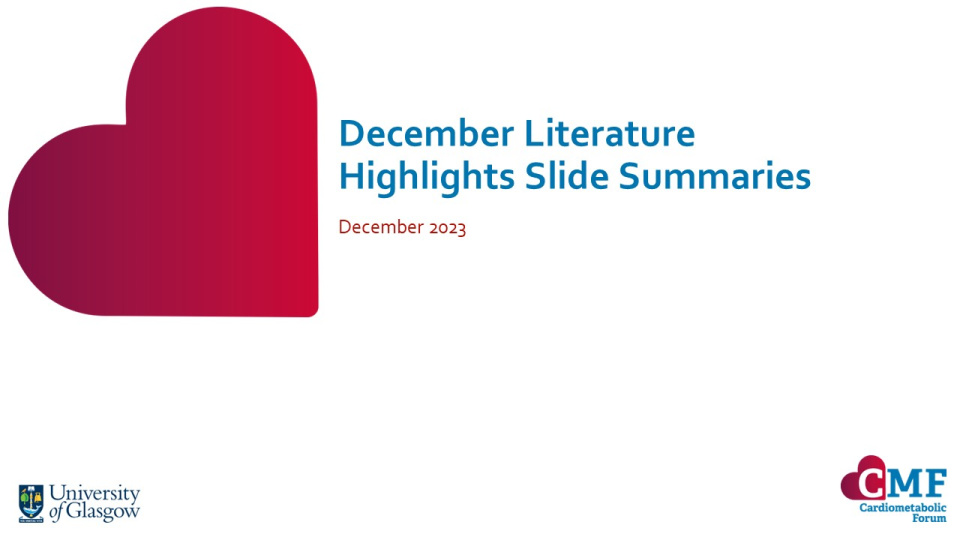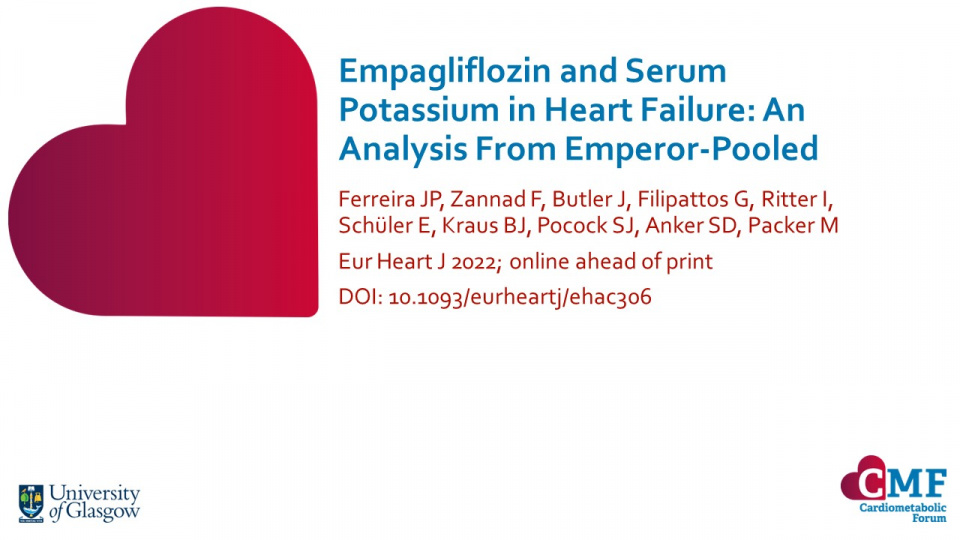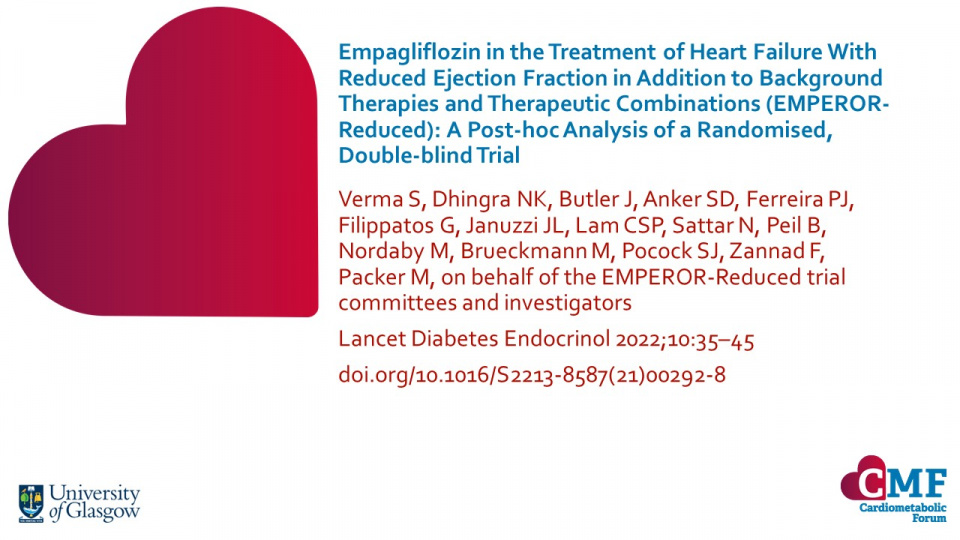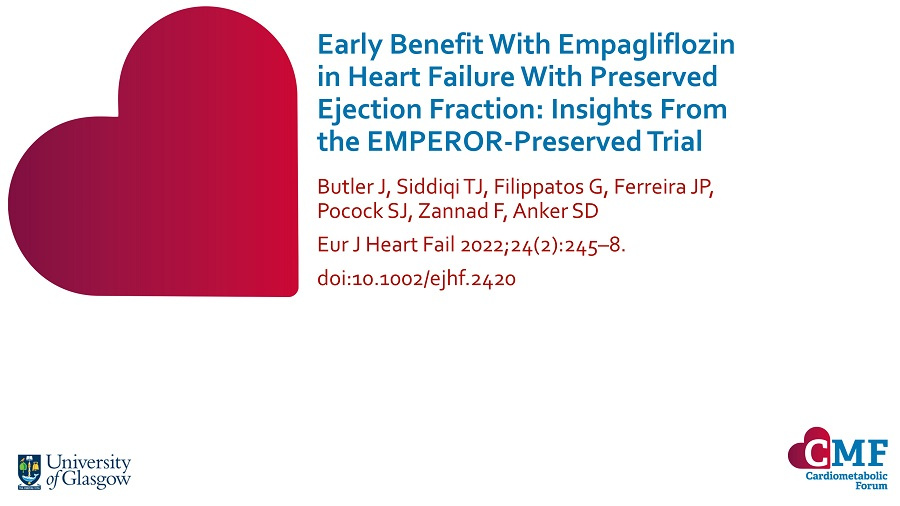Publications
Stay up to date with our literature reviews which are curated by experts to feature the most important publications released each month. Explore our publications for access to concise summary slides for your own use.
Empagliflozin and Serum Potassium in Heart Failure: An Analysis From Emperor-Pooled
Eur Heart J 2022; online ahead of print DOI: 10.1093/eurheartj/ehac306
In this pooled analysis, empagliflozin reduced the incidence of hyperkalaemia without significant increase in hypokalaemia.
Potassium is essential for normal cellular function, but severe potassium abnormalities can lead to cardiac arrhythmias and death. Hyperkalaemia frequently leads to interruption and discontinuation of neurohormonal antagonists, which may worsen the prognosis for people with heart failure (HF).
Empagliflozin in the Treatment of Heart Failure With Reduced Ejection Fraction in Addition to Background Therapies and Therapeutic Combinations (EMPEROR-Reduced): A Post-hoc Analysis of a Randomised, Double-blind Trial
Lancet Diabetes Endocrinol 2022;10:35–45 doi.org/10.1016/S2213-8587(21)00292-8
The data from the trial suggests that empagliflozin may be considered as a foundational therapy in heart failure with reduced ejection fraction. This post-hoc analysis of EMPEROR-Reduced – a randomised, double-blind, parallel-group trial – by Verma et al. evaluated the efficacy and safety of empagliflozin in patients with heart failure with reduced ejection fraction and to baseline treatment.
Early Benefit With Empagliflozin in Heart Failure With Preserved Ejection Fraction: Insights From the EMPEROR-Preserved Trial
Eur J Heart Fail 2022;24(2):245–8. doi:10.1002/ejhf.2420
Results reinforce sustained clinical, health status and quality of life benefits with empagliflozin in patients with HF‑pEF, and underscore the need for timely initiation of therapy.




